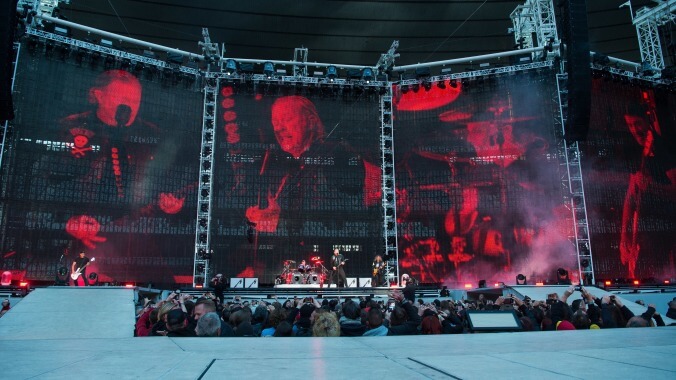Live Nation cops to working with a Metallica "ticketing consultant" to sell directly to resellers

There are few places on this planet that play better host to the glorious harmony between fandom, capitalism, and pure, unmitigated greed than the world of concert tickets, rife as it is with ticket resellers, middlemen, and all flavors of juicy, juicy fees. Live Nation, one of the biggest ticket sellers on the planet—and which you might know from “a variety of lawsuits and class action settlements” fame—recently offered an unintentional glimpse into just how complicated this little ecosystem can get, when leaked audio of its efforts to sell a bunch of 2017 Metallica tickets directly to the resale market hit the internet today.
To be fair, the company made the sales—for 88,000 tickets from the 2017 WorldWired tour—at the behest of an associate of the band’s management, who, like everybody in the music business, have struggled for years with how to handle the pricing paradoxes so easily exploited by the secondary market. (I.e.: If you try to sell tickets at high prices, fans lose their minds; if you try to sell them at low prices, the resellers slip in, buy them in bulk, and sell them for the price you could have hypothetically gotten.) Per Billboard, Metallica “ticketing consultant” Tony DiCioccio approached the company about getting aroudn these problems by selling a number of the band’s tickets directly to resellers back in 2017, hoping to recoup some of the profits they’d otherwise lose to the secondary market. The recorded audio of the call features Live Nation president of U.S. concerts Bob Roux hammering strategy for the sale, including giving advice on how to make it look like LiveNation wasn’t, you know, selling tickets directly to the resellers it’s supposedly working to keep ticket money away from.
It’s worth noting a couple of things here, though. One is that none of this is actually, like, illegal; Live Nation is allowed to sell tickets to whoever it wants, as long as it doesn’t engage in outright deceptive marketing practices. (Although you could argue that there’s something hinky about refusing to give the open market first crack at these particular tickets, something the company has come under fire for in the past.) Second is that the members of Metallica themselves don’t appear to have known anything about this; the deal was worked out by DiCioccio, who’s no longer one of the band’s managers, but who is reportedly considered “family” by its members. And third is that the recording of the conversation in question was made in secret and sent to a variety of sources by former Live Nation executive Vaughn Millette, the other guy on the call, who now runs a competitor to Live Nation and would presumably like to make the company look as bad as humanly possible.
Which, fair enough: Live Nation owned up to the practice of essentially selling tickets straight to scalpers today—while making it clear that it’s extremely rare, and only done when a band specifically requests it. (They would much rather bands work with programs like their Platinum Tickets, which also sell premium seats at a premium cost, but which at least mostly pass the cash on to the artists in question.) Still, it’s all what you might call “a bad look,” even if it’s been kind of fascinating in terms of getting a peek at how this particular sketchy corner of the ever-sketchy music business works.